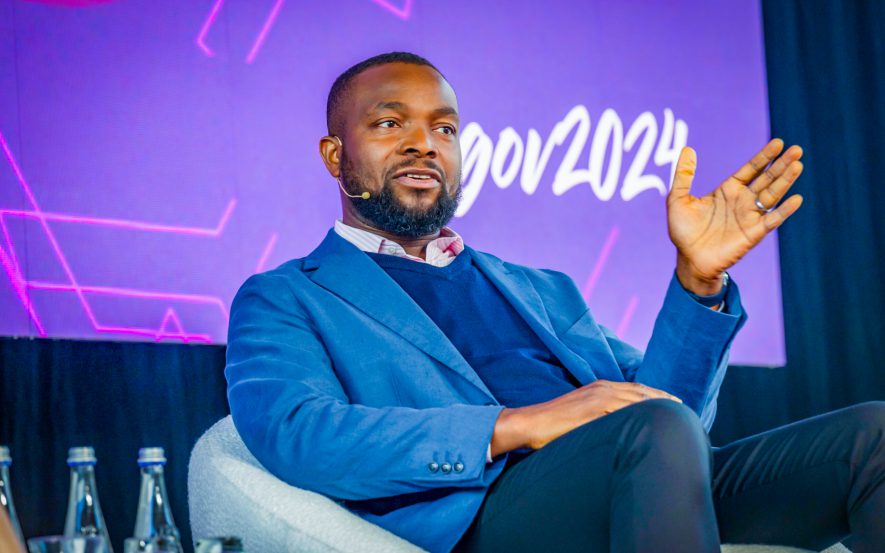BY OJO SAMSON AYOMIDE
Minister of Minister of Communications, Innovation, and Digital Economy, Dr. Bosun Tijani has once again reiterated the desires of the government of Bola Ahmed Tinubu to expand digital technology into the nook and crannies of the country.
While speaking on Thursday during an industry stakeholders session to discuss digital connectivity in rural, underserved and unserved areas of the country in Abuja, Dr. Tijani said that over the last 25 years, Nigeria has made significant strides in expanding connectivity and strengthening our digital technology infrastructure.
“In recent years, broadband penetration has been growing significantly, bringing millions more Nigerians online and enabling new opportunities for innovation, entrepreneurship, and digital inclusion.
“Today however, there are still millions of Nigerians on the fringes of digital transformation who are yet to have access to reliable connectivity. Many communities—particularly rural areas—face significant barriers, including inadequate infrastructure and limited digital literacy. These gaps not only hinder personal and business growth but also limit the full potential of Nigeria’s digital economy,” he said.
According to the minister, the Universal Service Provision Fund (USPF) has been a critical instrument in the Federal Governments’s mission to extend connectivity to these communities. By supporting infrastructure expansion, fostering local innovation, and driving inclusive policies, the USPF aligns with the His Excellency President Bola Ahmed Tinubu (GCFR)’s goal of enabling meaningful and affordable connectivity for all Nigerians.
The Federal Government, through the Ministry of Communications, Innovation, and Digital Economy, is also actively driving transformative projects aimed at unlocking digital opportunities for millions of Nigerians. Some of our flagship initiatives to close this divide include:
1. Project BRIDGE (90,000km Fibre Optic Expansion) which is designed to significantly improve broadband penetration across Nigeria by extending fibre optic infrastructure to all regions.
2. Project 774: This initiative ensures that every local government secretariat in Nigeria benefits from high-speed connectivity, fostering grassroots digital transformation.
3. The Universal Access Project: A game-changing initiative targeted at connecting over 20 million Nigerians who currently have no access to digital services.
4. The National Broadband Alliance of Nigeria (NBAN): Our multi-stakeholder effort to drive collaboration across government and private sector to drive universal high quality broadband access
5. The 3 Million Technical Talent programme ( 3MTT): Which is strengthening our talent pipeline to deliver a workforce to improve the digital ecosystem.
“These projects are not just focused on infrastructure; but also about enabling businesses, empowering individuals, and unlocking the full economic potential of Nigeria’s digital landscape as we work towards a 1 Trillion Dollar Economy.”
However, bridging this digital divide is not a task for the government alone. Sustainable and impactful progress requires strong partnerships across the public and private sectors, development agencies, civil society, and local communities.
To ensure effective collaboration, we must focus on four key pillars:
Community Engagement: By understanding and addressing the unique needs of our local communities, we can encourage their participation which is crucial to ensuring that the digital infrastructure solutions provided digital are relevant, accessible, and adopted at scale.
Leveraging Existing Infrastructure: We must maximize the value of the existing investment in networks, public facilities, and energy sources to optimise costs and ensure rapid deployment of connectivity solutions.
Capacity Building: Access to the internet is only beneficial if people have the skills to use it productively. Therefore, ensuring that Digital literacy programs, skills training, and entrepreneurship development are integrated into our overall infrastructure and connectivity strategy.
Sustainable Solutions: The future of connectivity in Nigeria must be economically and environmentally sustainable therefore, we should explore innovative business models, alternative energy solutions, and localised interventions that ensure long-term success.
“We stand at a defining moment in Nigeria’s digital transformation. We have the vision, the policy framework, and the will to connect every Nigerian to the digital economy. But we need your partnership to explore alternative innovative ways to deliver on all elements of our plans.
“There is a clear role for everyone – Government at all levels, Private Sector, Development Partners and local communities in this journey. Together, with a clear focus on investment in last mile connectivity, capacity building and infrastructure development as well as the creation of policies that enable the rapid deployment of digital infrastructure, we can achieve universal access to communications and digital literacy for all Nigerians by 2030,” he said.

